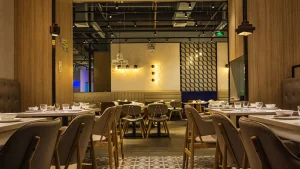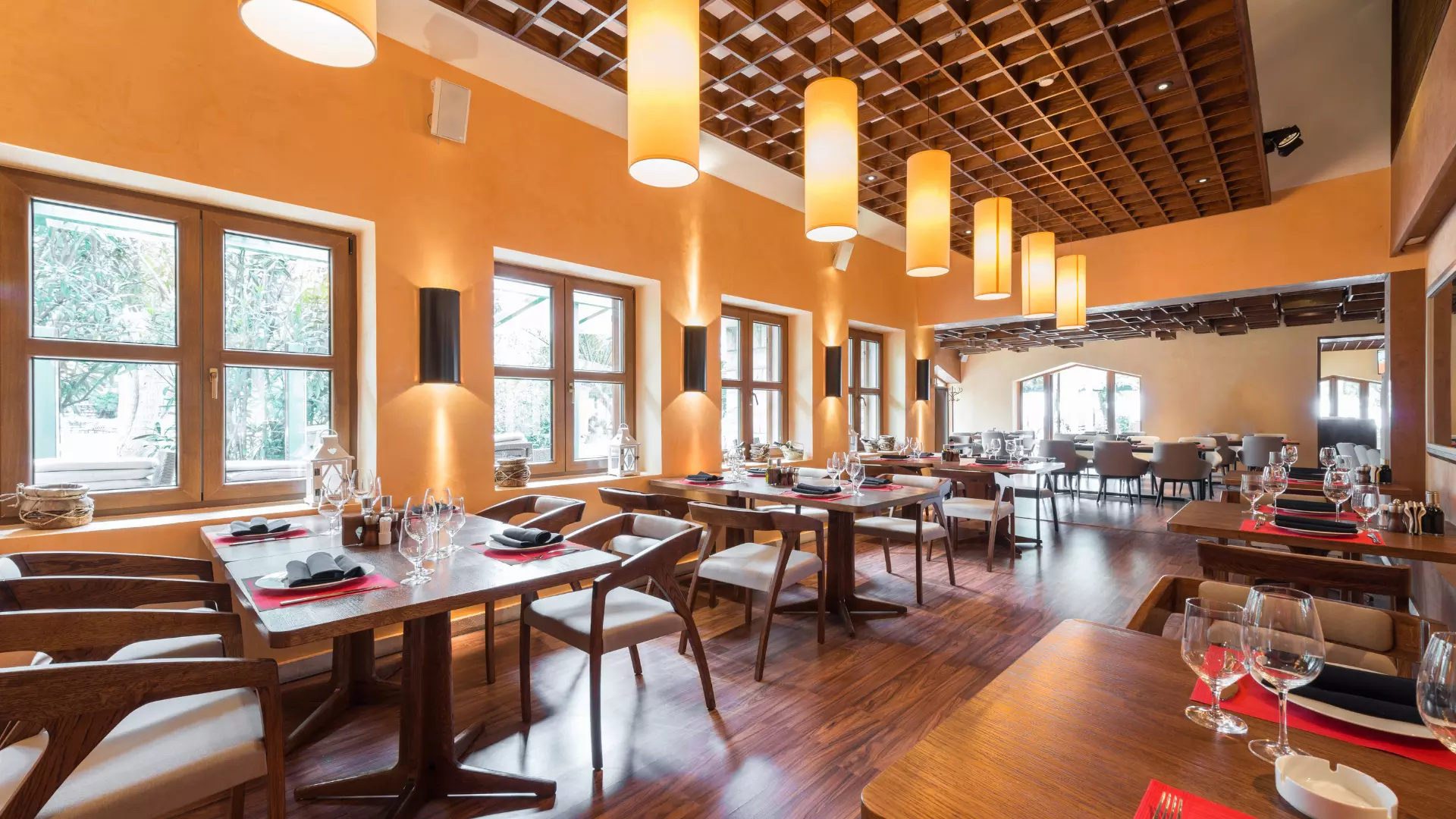Restaurant Insurance in Texas
Operating a restaurant in Texas comes with several distinctive obstacles and potential risks. Restaurant owners need to protect their businesses with comprehensive insurance coverage, ranging from fire risks and food-related illnesses to employee injury and liability cases. Knowing every detail regarding restaurant insurance in Texas is vital for safeguarding monetary and legal interests.
Why Do You Need Restaurant Insurance in Texas?
Restaurant owners in Texas face myriad different risks which may disrupt their operations. Without proper insurance coverage, business owners could face lawsuits, penalties, or other forms of monetary losses that could result in business closure.
The following points denote salient reasons restaurant insurance is important:
Legal Compliance
In some cases, Texas legislation obliges companies with workers to have workers’ compensation insurance. Also, liquor liability insurance is compulsory for all restaurants serving alcohol.
Property Protection
Restaurants buildings are at risk of destruction by fire, floods, water damage, vandalism, as well as other natural disasters, which can lead to costly renovations.
Employee and Customer Safety
There are risks of injuries to employees and clients which can increase costs such as lawsuits as well as medical bills.
Continuity in Business
Insurance ensures that operational activities can resume even in the case of sustained financial losses.
Restaurant Insurance Policies in Texas
At a state level, restaurant owners in Texas can draw up different policies to suit their specific needs.
These are some of the most fundamental and widespread coverages.
General Liability Insurance
General liability insurance covers third party bodily injuries, property damage, and defamation accusations. It also provides for medical spending, legal costs, and payouts in the event that a customer has a slip and fall accident in the restaurant.
Property Insurance
Property insurance comprises fire, theft, vandalism, and natural disaster which cause damage to the restaurant’s building and personal property.
It comprises of
Building Coverage
This policy provides protection for the restaurant’s physical structure.
Contents Coverage
This coverage insures the furniture, kitchen appliances, and other business property.
Workers’ Compensation Insurance
Workers’ compensation insurance covers an employee’s work related injuries. It ensures payment of medical expenses, covers lost income, and includes payments for disability.
Liquor Liability Insurance
Restaurants serving alcohol are compelled to have liquor liability insurance which covers accidents or damage to property that is caused by intoxicated customers.
Business Interruption Insurance
It covers the income lost when a restaurant has to shut down temporarily, either because of a fire or due to a natural disaster. It assists owners in expense management during the recuperation phase post damage.
Food Contamination Insurance
Restaurants that suffer from food contamination can face serious lawsuits and reputational damage due to foodborne diseases. This insurance helps bear the legal costs and medical fees in case customers fall sick due to food contamination.
Commercial Auto Insurance
This type of insurance is ideal for restaurants that offer delivery services as it insures the accident of a company-owned vehicle.
Cyber Liability Insurance
Any restaurant that keeps sensitive information, such as payment details of its customers, on file should have cyber liability insurance to cover data breaches and fraud.
Equipment Breakdown Insurance
This policy takes care of any expenses incurred due to the repair or replacement of vital kitchen equipment that stops working without warning.
Employment Practices Liability Insurance (EPLI)
EPLI shields owners from disputes with employees over claims relating to employment, including wrongful dismissal, harassment, or discrimination tes.

Factors Affecting the Cost of Restaurant Insurance in Texas
Before defining, the Texas restaurant insurance cost, consider these factors
Location
Restaurants in busy downtown areas may have higher premiums based on risk levels.
Size of the Business
Amount of employees and revenue typically affects the cost of insurance.
Type of Coverage
More comprehensive policies always cost more.
Claims History
A customer’s claims history can increase the risk of higher premiums.
Risk Management Measures – Taking safety precautions will reduce the chances of incurring a higher premium.
How to Pick a Restaurant Insurance Policy
It is important to put a policy under scrutiny before selection It is about proper coverage:
Assess Business Risks – Recognition of risks concerning your restaurant
Frequently Asked Questions (FAQs)
How much is $1,000,000 liability insurance a month?
The cost of a $1,000,000 general liability insurance policy varies based on factors such as the type of business, industry risk, location, and claims history. On average, small businesses pay between $30 to $100 per month for this coverage.
High-risk industries, such as construction or food service, may see higher premiums, while lower-risk businesses, like consulting firms, tend to pay less.
What type of insurance are you required to have by Texas law?
In Texas, businesses and individuals are required to have specific types of insurance, depending on their operations
Auto Liability Insurance
Texas law mandates that all drivers carry a minimum of 30/60/25 coverage, meaning
-
-
$30,000 for bodily injury per person
-
$60,000 per accident
-
$25,000 for property damage
-
Workers’ Compensation Insurance
Unlike many states, Texas does not require businesses to carry workers’ compensation insurance. However, employers who opt out may face liability for employee injuries.
Commercial Auto Insurance
Businesses that use vehicles for operations must have commercial auto insurance.
Professional Liability Insurance
While not mandated by state law, certain professions (such as medical practitioners, attorneys, and contractors) may be required to carry professional liability insurance by industry regulations or licensing boards.
How much is a $5 million dollar insurance policy for a business?
A $5 million general liability insurance policy typically costs $2,000 to $10,000 per year, depending on factors such as:
-
Industry risk level (e.g., construction is higher risk than IT consulting)
-
Business revenue and payroll size
-
Location and past claims history
For high-risk businesses, such as manufacturing or construction, premiums may exceed $20,000 per year, whereas lower-risk businesses may pay closer to the lower end of the spectrum.
How much is insurance for a restaurant business per month?
Restaurant insurance costs vary based on the size, location, and type of food service provided. On average:
-
General Liability Insurance: $100–$300 per month
-
Commercial Property Insurance: $150–$500 per month
-
Workers’ Compensation Insurance: $100–$1,000 per month (depending on staff size)
-
Liquor Liability Insurance (if alcohol is served): $50–$200 per month
A small restaurant may pay $200 to $600 per month for basic coverage, while larger establishments or fine dining restaurants may pay upwards of $1,000 per month.
How much should a small business pay for insurance?
Small business insurance costs depend on industry type, coverage needs, and risk factors. On average:
-
General Liability Insurance: $30–$100 per month
-
Professional Liability Insurance: $50–$200 per month
-
Business Owner’s Policy (BOP) (combining general liability and property insurance): $100–$500 per month
-
Workers’ Compensation Insurance (if required): $50–$300 per month
Most small businesses pay between $500 and $3,000 per year for a combination of essential policies.

Why is restaurant insurance so expensive?
Restaurant insurance tends to be more expensive due to the high-risk nature of the industry. Some key risk factors include:
-
Fire Hazards – Cooking equipment increases fire risks, leading to higher property insurance costs.
-
Slip-and-Fall Incidents – High foot traffic in restaurants makes liability claims common.
-
Foodborne Illnesses – Food poisoning claims can lead to expensive legal settlements.
-
Liquor Liability – Restaurants that serve alcohol face additional liability risks related to intoxicated customers.
-
Employee Injuries – Kitchens are hazardous workplaces, increasing workers’ compensation insurance costs.
How much are utilities for a restaurant?
The cost of utilities for a restaurant depends on size, location, and equipment usage. On average, restaurants spend:
-
Electricity: $1,000–$3,000 per month
-
Gas: $300–$1,500 per month
-
Water & Sewer: $200–$1,500 per month
-
Trash Removal: $100–$600 per month
Total monthly utility costs typically range between $2,000 and $8,000, with larger or 24-hour establishments paying more.
Do I need insurance to run a small business?
Yes, most small businesses need insurance to protect against potential risks and liabilities. While some coverage types, such as workers’ compensation or commercial auto insurance, may be legally required, others (like general liability and property insurance) are crucial for financial protection. Without insurance, a small business may struggle to cover legal claims, property damage, or employee injuries, which can lead to significant financial losses.








